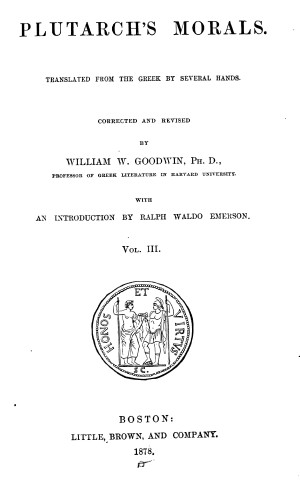
Part of: Plutarch’s Morals, 5 vols. The Morals, vol. 3
- Plutarch (author)
- William W. Goodwin (translator)
Vol. 3 of a massive 5 volume work in which Plutarch muses on all manner of topics ranging from virtue and vice, friendship, flattery, the nature of love, stoic philosophy, fate, to the nature of government.